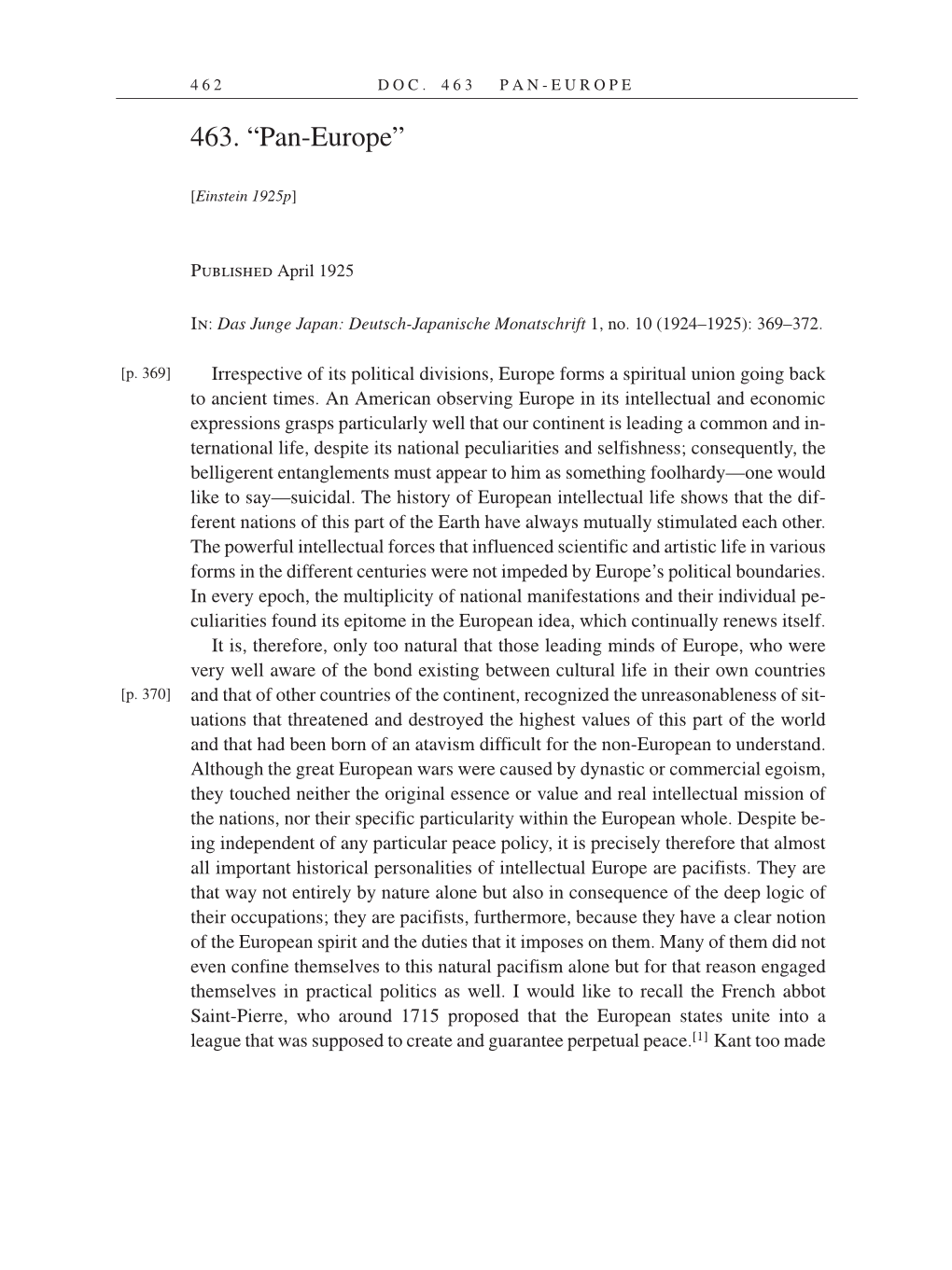4 6 2 D O C . 4 6 3 P A N - E U R O P E
463. “Pan-Europe”
[Einstein 1925p]
Published April 1925
In: Das Junge Japan: Deutsch-Japanische Monatschrift 1, no. 10 (1924–1925): 369–372.
Irrespective of its political divisions, Europe forms a spiritual union going back
to ancient times. An American observing Europe in its intellectual and economic
expressions grasps particularly well that our continent is leading a common and in-
ternational life, despite its national peculiarities and selfishness; consequently, the
belligerent entanglements must appear to him as something foolhardy—one would
like to say—suicidal. The history of European intellectual life shows that the dif-
ferent nations of this part of the Earth have always mutually stimulated each other.
The powerful intellectual forces that influenced scientific and artistic life in various
forms in the different centuries were not impeded by Europe’s political boundaries.
In every epoch, the multiplicity of national manifestations and their individual pe-
culiarities found its epitome in the European idea, which continually renews itself.
It is, therefore, only too natural that those leading minds of Europe, who were
very well aware of the bond existing between cultural life in their own countries
and that of other countries of the continent, recognized the unreasonableness of sit-
uations that threatened and destroyed the highest values of this part of the world
and that had been born of an atavism difficult for the non-European to understand.
Although the great European wars were caused by dynastic or commercial egoism,
they touched neither the original essence or value and real intellectual mission of
the nations, nor their specific particularity within the European whole. Despite be-
ing independent of any particular peace policy, it is precisely therefore that almost
all important historical personalities of intellectual Europe are pacifists. They are
that way not entirely by nature alone but also in consequence of the deep logic of
their occupations; they are pacifists, furthermore, because they have a clear notion
of the European spirit and the duties that it imposes on them. Many of them did not
even confine themselves to this natural pacifism alone but for that reason engaged
themselves in practical politics as well. I would like to recall the French abbot
Saint-Pierre, who around 1715 proposed that the European states unite into a
league that was supposed to create and guarantee perpetual
peace.[1]
Kant too made
[p. 369]
[p. 370]
